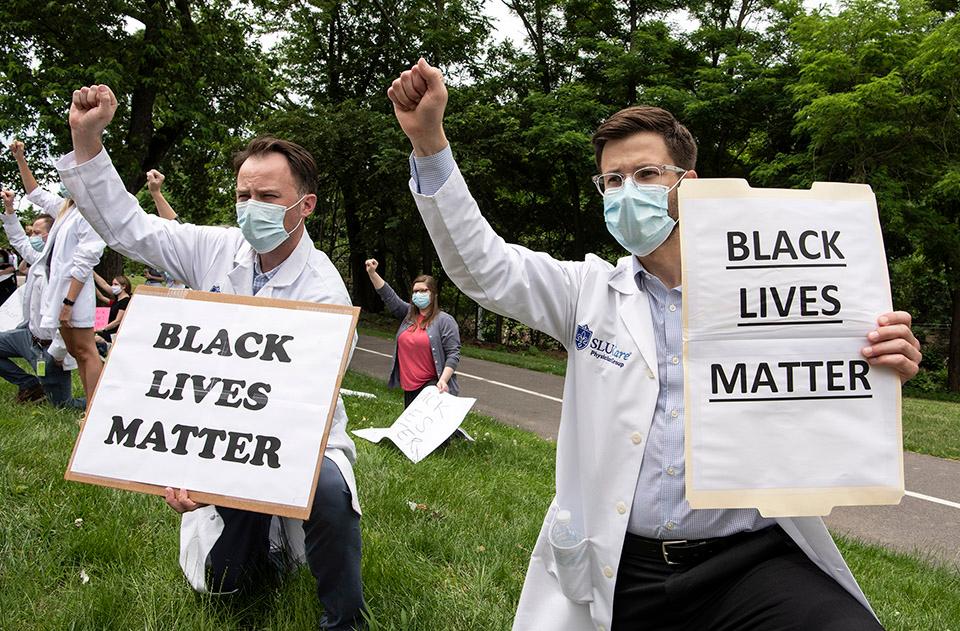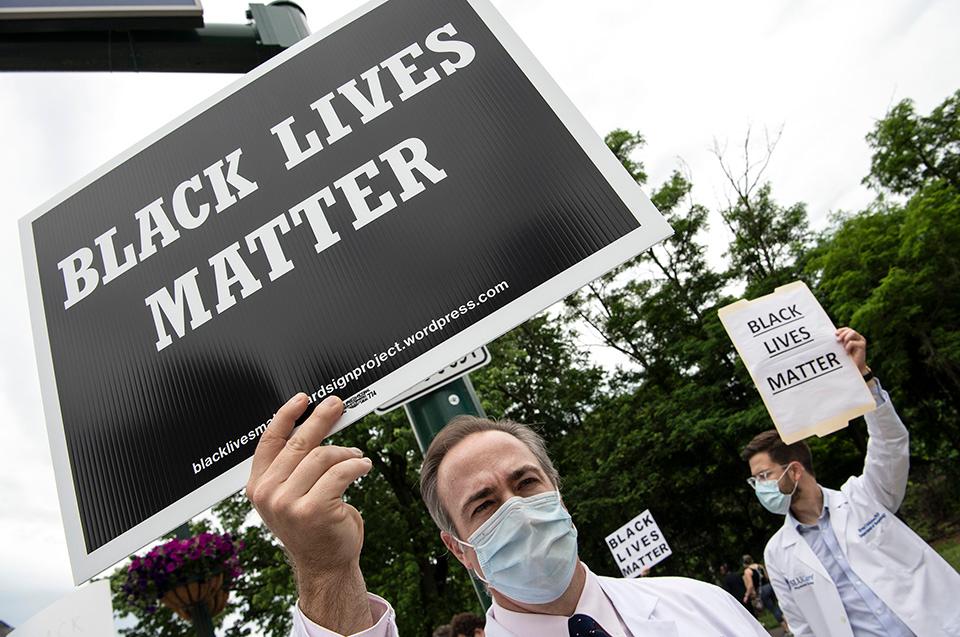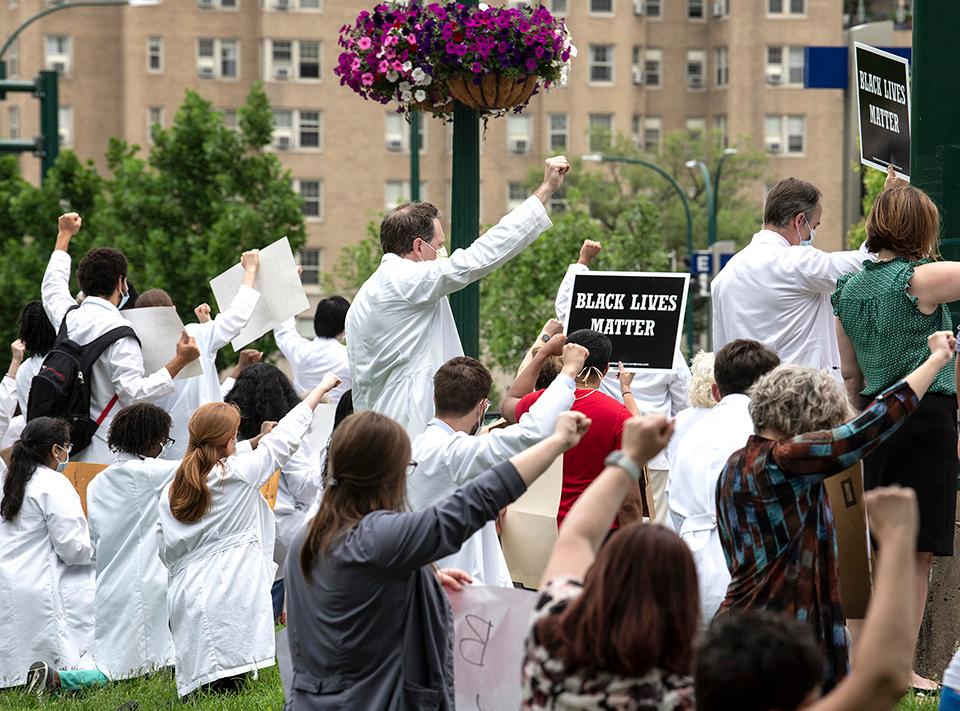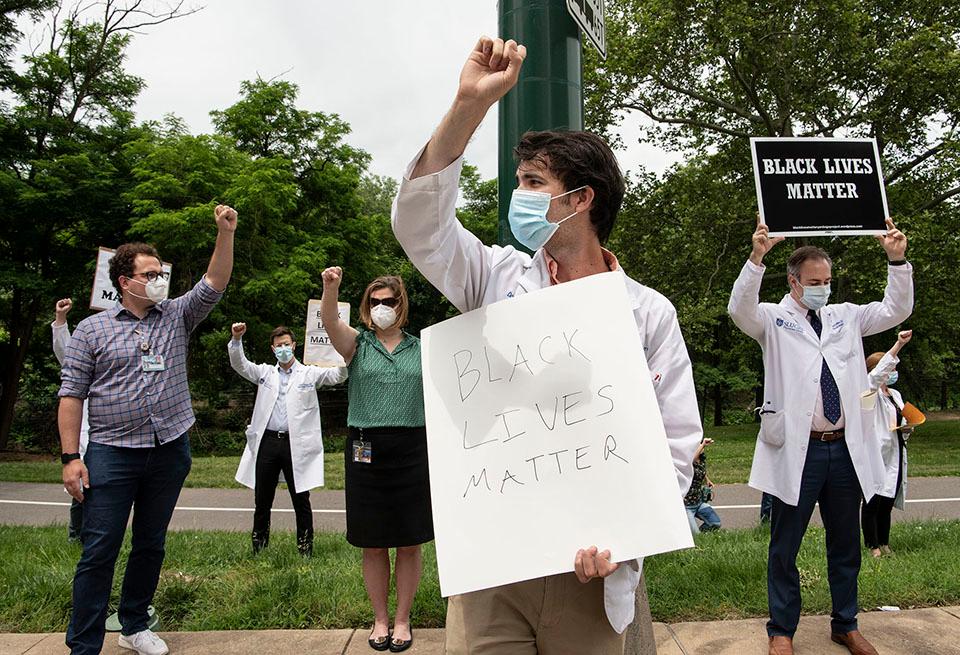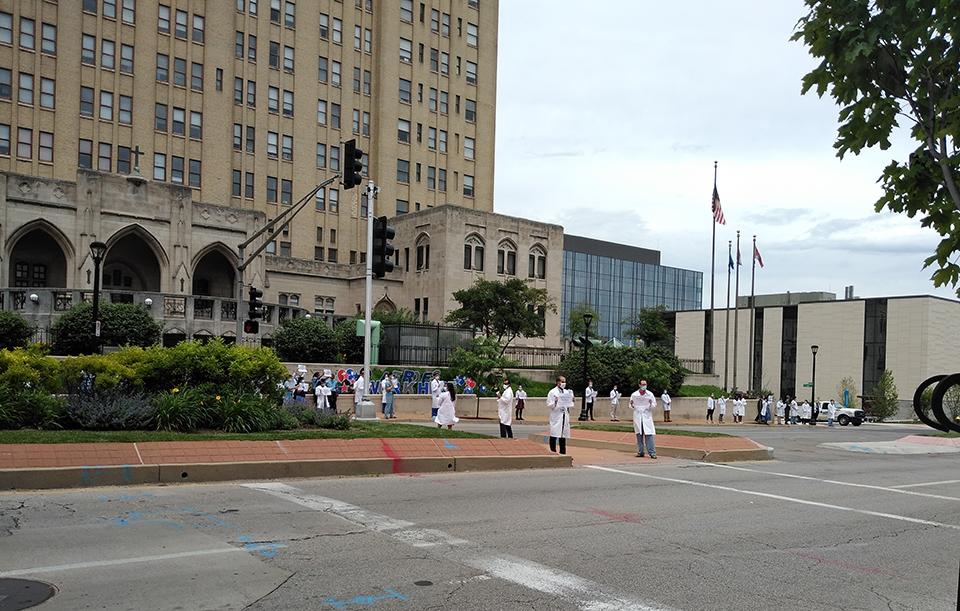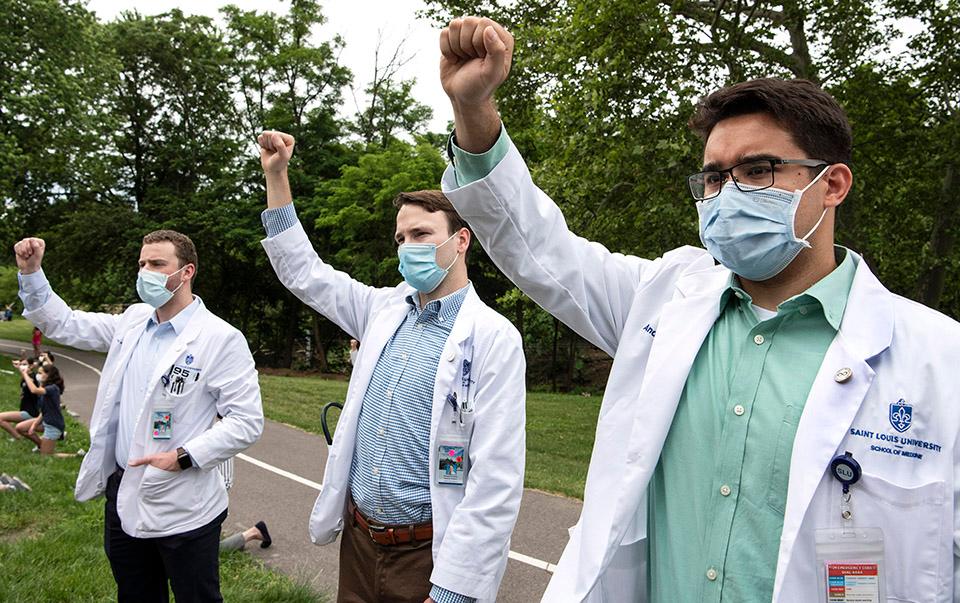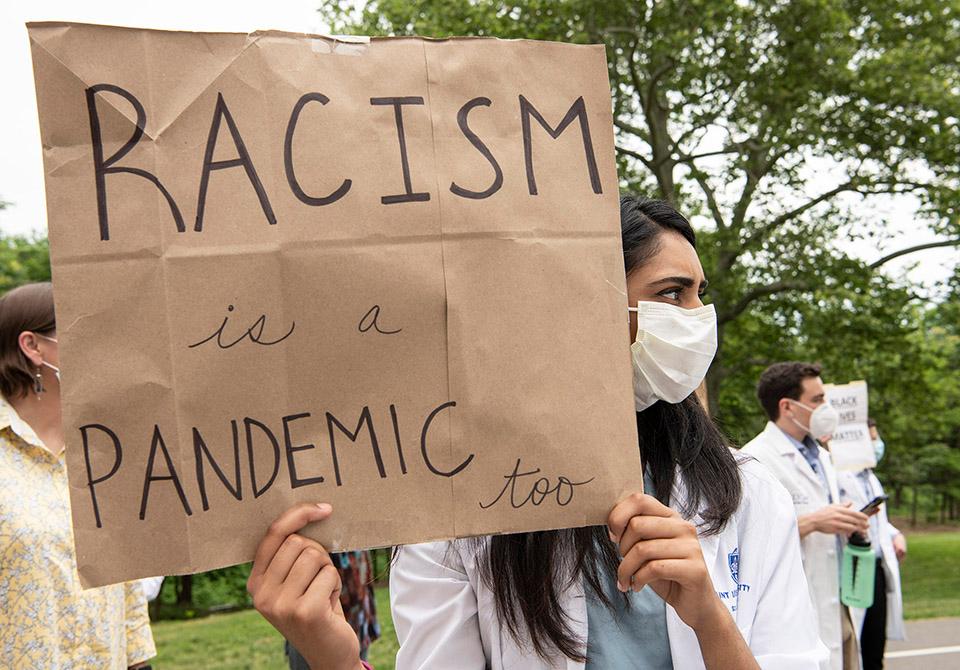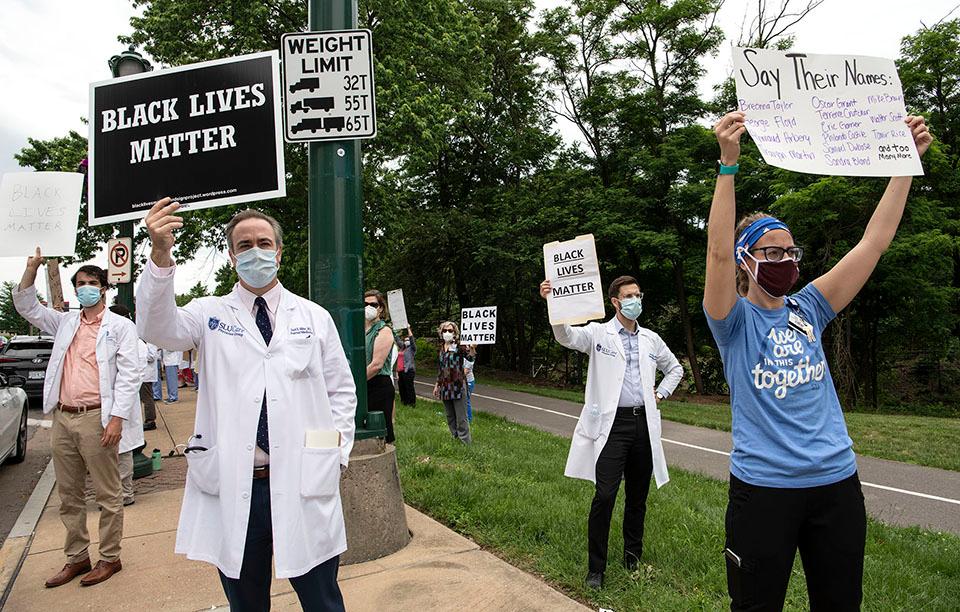SLU Med Students, Faculty Participate in White Coats for Black Lives Protest
Maggie Rotermund
Senior Media Relations Specialist
maggie.rotermund@slu.edu
314-977-8018
Reserved for members of the media.
Saint Louis University School of Medicine students and faculty participated Friday, June 5, in national #WhiteCoats4BlackLives protests at SSM Health Saint Louis University Hospital and Barnes-Jewish Hospital.
WhiteCoats4BlackLives is a medical student-run organization born out of the National White Coat Die-In demonstrations that took place on Dec. 10, 2014.
Nia Johnson, a third-year medical student at SLU, participated in the protest.
“It has been difficult for me, a black medical student, to be completely engaged and active with the news and demonstrations with taking my first board exam and starting on surgery rotation. It takes too much of a mental toll on me to be present and vocal, even when my people need it most.”
“Yet, I still feel as strong pull to ‘do something.’ SLU’s demonstration in WhiteCoats4BlackLives allowed me to do just that, a small way to stand in solidarity with faculty and my colleagues,” Johnson said. “The best part for me was the support we received from the community as they drove by honking their horns and raising their fists in solidarity. It means so much when the community you’re serving knows that you care about them.”
WhiteCoats4BlackLives’s goals are:
- Foster dialogue on racism as a public health concern, including encouraging physicians, physician organizations and medical institutions to publicly recognize racism as a public health issue. This includes promoting medical students’ involvement in local and national movements to end racism and police brutality.
- End racial discrimination in medical care. Demand that academic medical centers serve the health care needs of their local communities, particularly the needs of patients of color.
- Prepare future physicians to be advocates for racial justice, by improving the recruitment and support of Black, Latinx, and Native American medical students; promoting the recruitment, retention, and hiring of Black, Latinx, and Native American physicians in medical school teaching, research, and leadership positions; and developing national medical school curricular standards that educate current and future medical professionals on the history and current manifestations of racism in medicine, principles of anti-racism, and strategies for dismantling structural racism.
The event began at 11:30 a.m. and included 8 minutes and 46 seconds of silence to honor George Floyd, who was killed by police in Minnesota on May 25.
Established in 1836, Saint Louis University School of Medicine has the distinction of awarding the first medical degree west of the Mississippi River. The school educates physicians and biomedical scientists, conducts medical research, and provides health care on a local, national and international level. Research at the school seeks new cures and treatments in five key areas: infectious disease, liver disease, cancer, heart/lung disease, and aging and brain disorders.


















